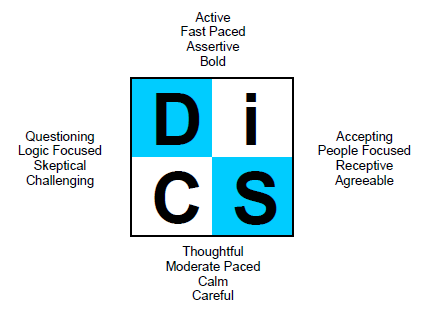The Platinum Rule
A few months prior to being married, my then-future-wife and I spent some quality time together looking for a new apartment. We had already discussed the specifics about what we wanted: a two bedroom apartment, on the top floor, equidistant from our workplaces, in a nice neighborhood. Simple, right?
The first three apartments we looked at weren't all that great, and usually violated one of the four criteria we had defined before our search began. Then, we found it. A classy apartment complex which backs right up to the 18th hole of a golf course. There was one 3rd floor apartment available with a wonderful view of the fairway, bay windows, two bedrooms, and no crime (according to our tour guide). It was perfect!
After the tour, I was ready to put down a deposit immediately on the apartment to ensure it was ours if we wanted it. After all, it was Saturday and I couldn't have another almost-married couple coming in and snatching it away from us. Plus, if we found something better, we could cancel our application and just be out the deposit money. Win-win. I hope they have FiOS.
My fiancée on the other hand, was not so easily convinced. In her mind, we hadn't finished looking at all of the apartments on the list she compiled a couple of nights prior. "What if we find something better?" We hadn't pulled the crime report for the area yet. "What if we live in a complex full of miscreants?" Even though we found something which fitted our criteria, how was she supposed to make a decision in such a short period of time without having all of the facts?
At the end of the day, we were both operating our apartment search with behaviors which came natural to us. I have more of a driving personality. I like setting and achieving goals, juggling more than I can typically handle, making decisions quickly, competing over everything, and moving at a faster than normal pace - regardless of how the others around me feel. I'm the type that is prone to take big risks and fail spectacularly.
My wife, on the other hand, is conscientious by nature. She is much more methodical and deliberate and doesn't mind working at a slower pace. She values quality and accuracy. She doesn't like making decisions until all of the facts are present - and would probably prefer to have someone else decide, and simply point out flaws in their plan. My wife is the type who will keep people like me from going off the rails.
We've all heard the Golden Rule, in some variation, at some point in our lives: "Do unto others what you would have them do unto you". By this point in the story, it's clear this strategy would have been the wrong move. If I behaved according to my preferences, I would have strong-armed my fiancé into doing what I wanted to do with little regard to her thoughts or feelings - remember, I want someone to be direct with me and make decisions quickly. If I went down this path, we would have likely started the rest of our lives together on the wrong foot - and in an apartment that she hated. Luckily, I was fortunate enough to take a step back and explain my reasoning on how putting a deposit down would actually give us more options and that nothing was set in stone.
What I practiced here, although I didn't know it at the time, is what Dr. Tony Alessandra calls the Platinum Rule.
Do unto others as they want done unto them.
Whether we are apartment hunting with our significant other, working with a peer on a budget, or communicating status to our boss, we are much better served if we stop to think about their communication preferences and adjust ours accordingly. Accomplishments in all areas of life are predicated on our relationships. There is very little we can accomplish on our own, regardless of how smart we are.
In People Smart Dr. Alessandra covers the four behavioral types into which all humans fit - based on decades of research. Dominance, Influence, Steadiness, and Conscientiousness. You will find out which quadrant (or, in the case of my wife quadrants) you fit into and learn how to effectively interact with others, regardless of your individual preferences.
- Dominance - Assertive, task-focused. Interested in accomplishing goals and taking charge. Not afraid to make decisions. Can be viewed as pushy.
- Influence - Assertive, people-focused. "Salesey". Optimistic and likes to collaborate. Accomplishes things through others. Can be viewed as disingenuous.
- Steadiness - Passive, people-focused. Cooperative and dependable. Focuses on the feelings of others, low drama, humble, stable. Can be viewed as indecisive.
- Conscientiousness - Passive, task-focused. Expert. Emphasizes correctness and quality. Works at a slower pace than the more dominant type. Introverted. Can be viewed as apathetic.

Understanding your behavioral tendencies and how you react in various situations will go a long way to ensure you remain effective in your relationships, even when you have to work with people who are your behavioral opposite. I spent a large portion of my career dealing with interpersonal issues the wrong way, focusing on what I wanted instead of how I could adapt my style to be more accommodating to those around me.
Positive relationships are built out of practice and hard work. This is a skill which can be learned and improved upon. A little bit of personal investment now will pay you large dividends in the future. People Smart and DiSC are two great resources to get you started.
Subscribe for Free
Want to stay ahead of the curve? Subscribe now to receive the latest updates, actionable insights, and thought-provoking ideas around business, technology, and leadership straight to your inbox.



